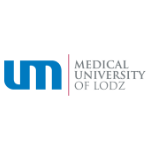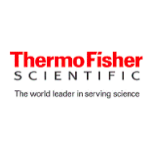Airway disease analysis and prevention
The ADAPT solution combines two innovations, a non-invasive nasal sampling device and a new set of biomarkers, to create a novel diagnostic kit that permits earlier, more precise assessment of inflammatory respiratory disease, thereby facilitating better intervention and personalised treatment.
Origins
Inflammatory airway diseases are often diagnosed too late, despite the heavy toll these diseases take. Every year in the EU, respiratory diseases are responsible for 600 000 deaths and 6 million hospital visits, as well as social costs of €200 billion. Asthma, COPD and allergic rhinitis patients would benefit greatly from a more accurate diagnosis of their inflammatory status that is made earlier, before airway damage occurs.
Team
ADAPT is lead by TUM Klinikum rechts der Isar. TUM works with partners from Phadia AB (Thermo Fisher Scientific), Rheinisch-Westfaelische Technische Hochschule Aachen, Universitätsklinikum Aachen and Uniwersytet Medyczny w Łodzi to provide expertise in producing the panel of biomarkers. Vienna Challenge Chamber are leading experts in pollen exposure studies. Hunt Developments (UK) limited and Imperial College London contribute their work on the diagnostic device.
The project
ADAPT will validate an entirely new, non-invasive diagnostic device for topical sampling of chronic airway diseases and combine it with an innovative panel of precision-medicine biomarkers. The solution will allow early detection and differentiation of allergic rhinitis and asthma endotypes, which are responsive to prevention and specific treatment. The innovation opens new avenues in precision medicine, allergy prevention and home care.
The ADAPT solution combines the newly developed biomarker candidate panel with “Nasosorption™ FX·i”, a safe, single-use device for non-invasive nasal sampling. The added value of this concept is that the more sensitive assessment is applicable in clinical practice, even in children or the elderly. The diagnostic test is envisioned as a tool for primary care, and there has also been consideration of developing it further, for home-care settings.
EIT Health supports the validation of this unique innovation and facilitates the bridging of accumulated knowledge in research and commercialisation from world leaders in the immunodiagnostic industry.
Impact
By significantly improving early intervention and targeted treatment, ADAPT will help reverse the natural course of disease and reduce direct and indirect disease-related costs.
Benefits for patients include:
- increased individual quality of life of patients;
- reduced risk of developing a chronic inflammatory allergic disease.
Benefits for society include:
- increased public productivity and competitiveness;
- reduced healthcare and sick-leave costs.
Why this is an EIT Health project
The ADAPT innovation meets the EIT Health goal of improving healthcare. This project is also in keeping with the EIT Health Focus Area of “Care Pathways”, because it promises earlier and more accurate diagnosis of inflammatory airway diseases, and that will lead to better treatment and outcomes for patients.
External Partners
Partners

CLC/InnoStars: UK-Ireland
Partner classification: Education, Research
Partner type: Core Partner
Imperial College London is a world leading, science-based university that develops the next generation of researchers, scientists and academics through collaboration across disciplines, harnessing science and innovation to tackle global challenges.
Imperial College London
Imperial College London, Exhibition Rd, London SW7, UK
Key Activities in Corporate Innovation
Med Tech, ICT
Key Activities in Social Innovation
Healthcare provision
Key Activities in Business Creation
Technology Transfer
Key Activities in Education
Business Schools, Entrepreneurship training, Technical faculties, Medical faculties, Healthcare professional education/training


CLC/InnoStars: InnoStars
Partner classification: Education, Research
MUL is among the largest state-owned medical Universities in Poland. It has reached a leading position in the following research areas: immunology, molecular biology, genetics of homeostasis disorders, oncology, hypertension and endocrinology. Within the last two years, young researchers from MUL were considered leaders in areas such as cardiology, oncology, immunology and dermatology.
Medical University of Łódź
Medical University of Łódź, Kościuszki 4, 90-419 Łódź, Poland
Key Activities in Corporate Innovation
Med Tech, Diagnostics
Key Activities in Social Innovation
Healthcare provision
Key Activities in Business Creation
Technology Transfer, Testing & Validation
Key Activities in Education
Entrepreneurship training, Medical faculties, Healthcare professional education/training

CLC/InnoStars: Germany
Partner classification: Education, Research, Tech Transfer, Clusters, Other NGOs, Hospital / University Hospital
RWTH Aachen University and its hospital (focus on patient-oriented medicine & nursing care) provide leading research, innovation and education within the core themes of EIT Health. Our industry-need-driven competence centres foster entrepreneurship
RWTH Aachen University
RWTH Aachen University, Templergraben 55, 52062 Aachen, Germany
Key Activities in Research and Developement
Biomedical engineering, Life Sciences, Social sciences / health economics, Clinical research
Key Activities in Business Creation
Incubation, Technology Transfer, Testing & Validation
Key Activities in Education
Entrepreneurship training, Technical faculties, Medical faculties, Healthcare professional education/training

CLC/InnoStars: Germany
Partner classification: Education, Research, Tech Transfer, Clusters, Other NGOs, Hospital / University Hospital
Partner type: Core Partner
TUM is one of Europe's top Universities. It is committed to excellence in research and teaching, interdisciplinary education, and the active promotion of promising young scientists.
Technische Universität München (TUM)
Technische Universität München (TUM), Arcisstraße 21, 80333 München, Germany
Key Activities in Research and Developement
Biomedical engineering, Life Sciences, Social sciences / health economics, Clinical research
Key Activities in Business Creation
Incubation, Technology Transfer
Key Activities in Education
Entrepreneurship training, Technical faculties, Medical faculties


CLC/InnoStars: Scandinavia
Partner classification: Business
As the Immuno Diagnostic experts within Thermo Fisher Scientific, we develop, manufacture and market complete blood test systems to support clinical diagnosis and monitoring of allergy, asthma and autoimmune diseases.
Thermo Fisher Scientific
Thermo Fisher Scientific, Rapsgatan 7, 754 50 Uppsala, Sweden
Key Activities in Corporate Innovation
Pharma, Diagnostics
Key Activities in Social Innovation
Healthcare provision
Key Activities in Business Creation
Testing & Validation
Key Activities in Education
Medical faculties, Healthcare professional education/training

| Director | Klinikum rechts der Isar der Technischen Universität München
Contact